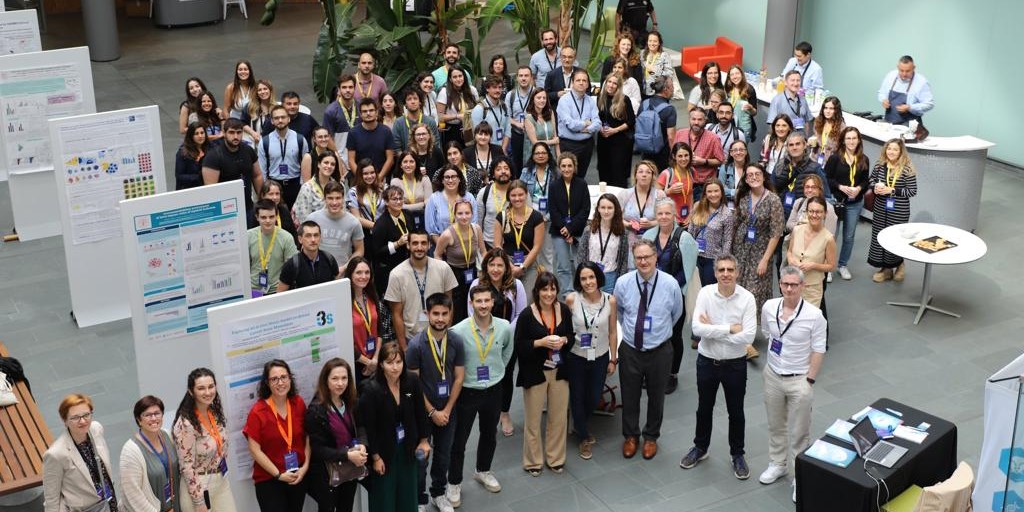European scientists unite in the quest for breakthroughs in immunotherapy treatments

The network IMMUNO-model has brought together researchers and innovators from all over the world to foster research in immuno-oncology through the advancement in the development and implementation of pre-clinical models. This initiative is funded by the European Cooperation in Science and Technology (COST) programme.
Despite the success of immunotherapy in treating previously incurable diseases like metastatic melanoma, its broader application is still limited by variable effectiveness and associated toxicities. To address this, immuno-oncology research seeks to better understand how tumour cells interact with the immune system, which is essential for improving these treatments.
One of the most significant challenges of the field is the lack of preclinical models that accurately represent human immune responses. This gap has made it difficult to discover new therapeutic targets, identify markers for treatment response and toxicity, and produce reliable data on the interactions between different drugs.
What is IMMUNO-model?
The IMMUNO-model COST Action is an international network of scientists from different backgrounds and disciplines that collaborate on immunotherapy research to tackle its current obstacles. The Action started on November 2022 and will last until November 2026.
The network promotes the development, standardisation and application of preclinical models in immunotherapy. It organises community-building events, creates connections between scientists, and trains future researchers. Its ultimate goal is to translate scientific findings into practical benefits for cancer patients and society.
The leader of the Resistance, Chemotherapy and Predictive Biomarkers Group at the Germans Trias i Pujol Research Institute (IGTP) and Institut Català d'Oncologia (ICO), Eva Martínez Balibrea, who is involved in IMMUNO-model as Action Chair, Grant Holder Scientific Representative and Management Committee Member, states: "The collaboration within IMMUNO-model marks a significant leap forward in our fight against cancer through immunotherapy. By joining forces across Europe, we are significantly expanding our capabilities to develop more accurate and effective preclinical models. These models are crucial for better understanding immune responses and for advancing safer and more effective treatments for patients. The diversity of experts and the breadth of knowledge within our network are enabling us to tackle the most complex challenges of immuno-oncology with an innovative and multidisciplinary approach. Our goal is clear: to improve the quality of life of patients and to provide real solutions in the battle against cancer".
Diverse areas of study
IMMUNO-model comprises five distinct working groups, each dedicated to specific goals and activities.
Working groups 1 and 2 are focused on the study of in vitro and ex vivo pre-clinical immunotherapy models. Groups 3 and 4 conduct research on solid and haematologic tumours, aiming to identify the most effective models for studying the efficacy and toxicity of immune therapies. Lastly, group 5 is responsible for managing network communication and disseminating activities and findings.
Insights into the first year of the Action
During its initial stage, the IMMUNO-model network expanded significantly, growing from 15 to 30 COST member countries and from 8 to 17 Inclusiveness Target Countries (specifically supported for research development). This growth was spurred by various activities that fostered connections within the network, helping to reach a broader base of participants.
The five working groups held regular meetings to initiate activities aligned with the Action's objectives, promoting collaboration and advancing the scientific agenda. Meanwhile, the Management Committee and Core Group concentrated on organisational and administrative tasks, ensuring the Action's goals are met within the four-year timeframe.
Key achievements in this period include two well-attended workshops (see the report of the second one, held in Denmark), the successful annual conference in Badalona, Spain, and a training school in Turkey focused on micro-physiological systems.
Additionally, the Action facilitated knowledge exchange through seven Short-Term Scientific Missions and an Inclusiveness Target Countries Grant, enhancing collaborative research and participation across the network.
